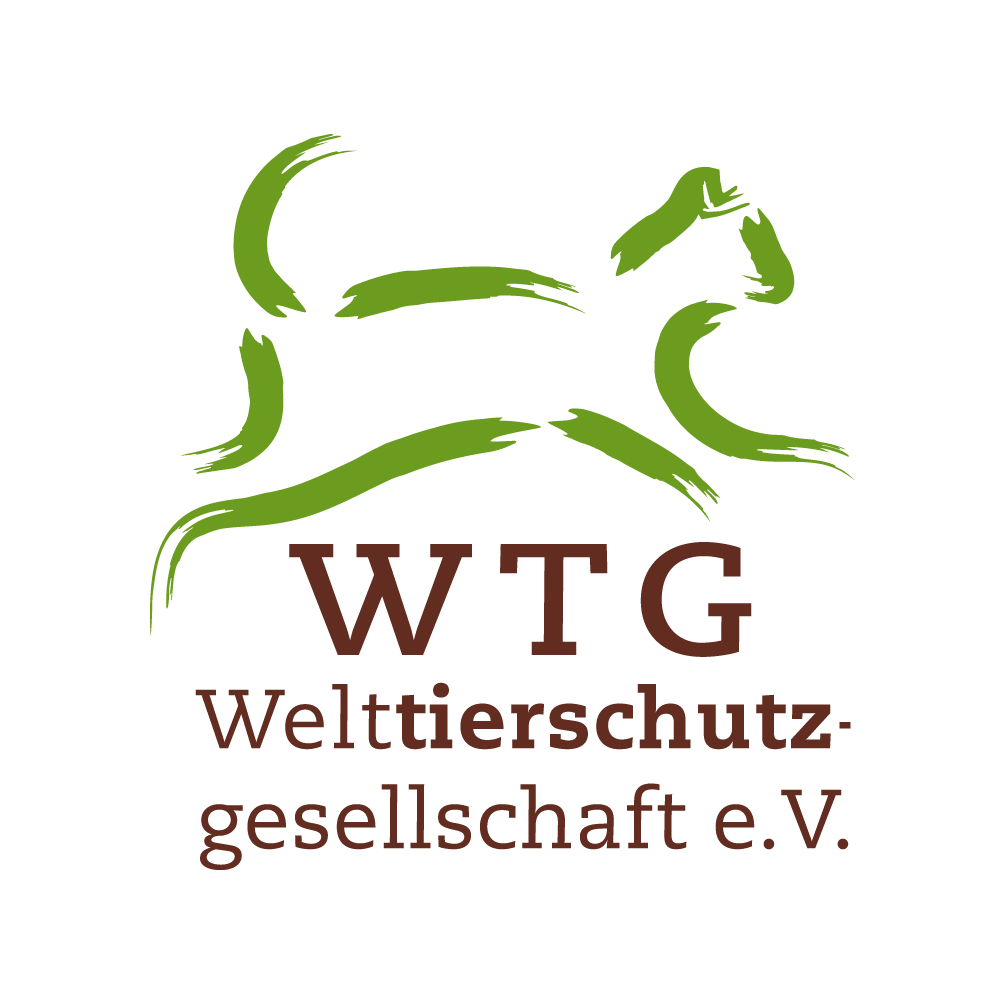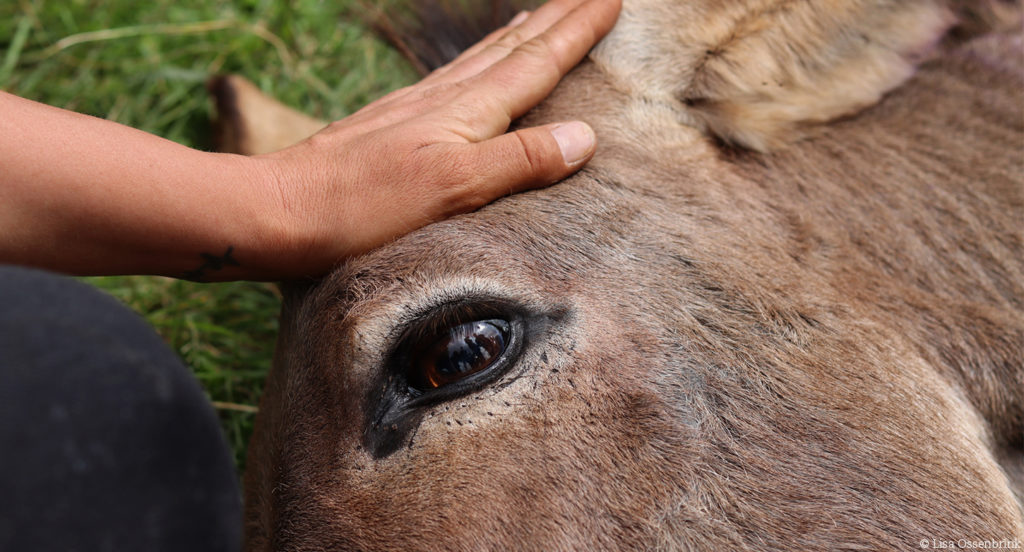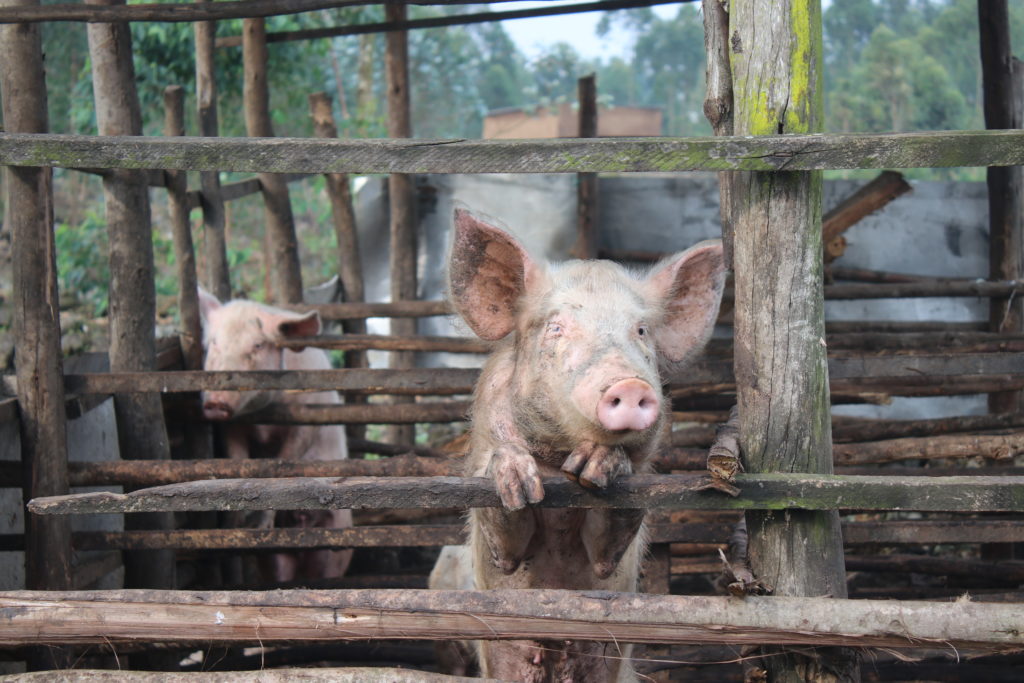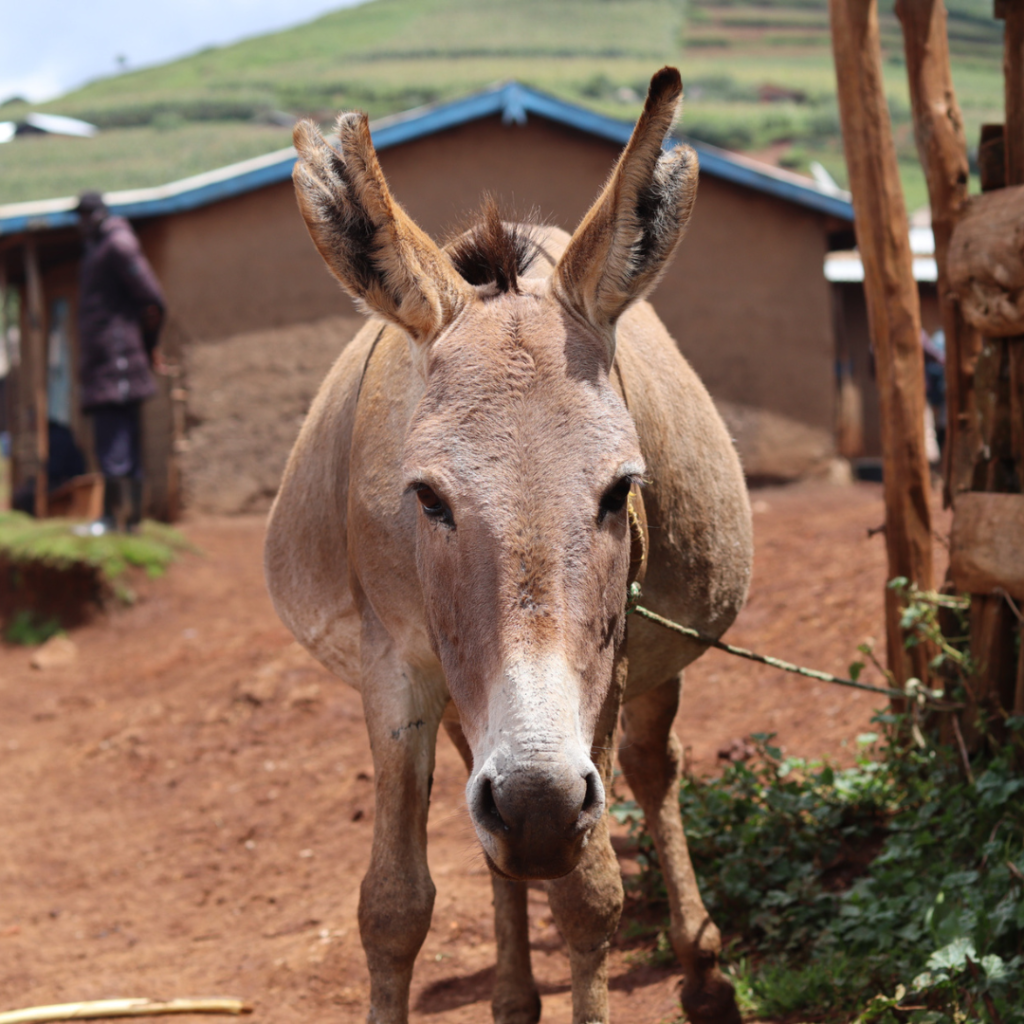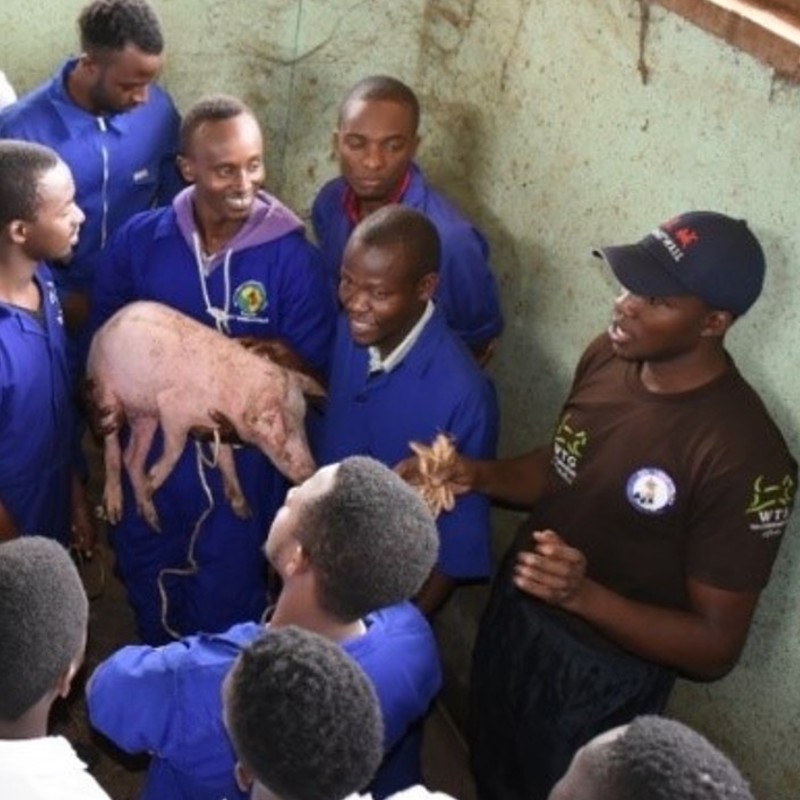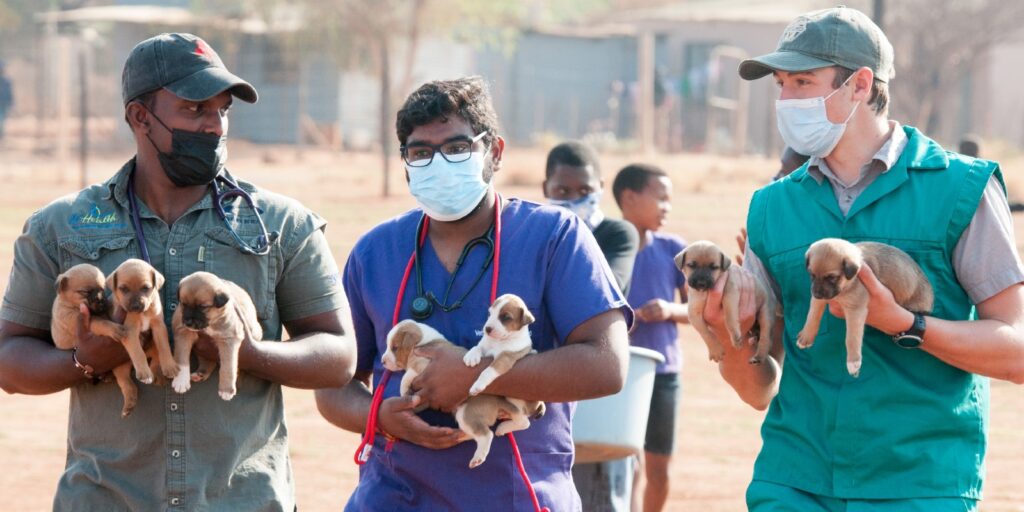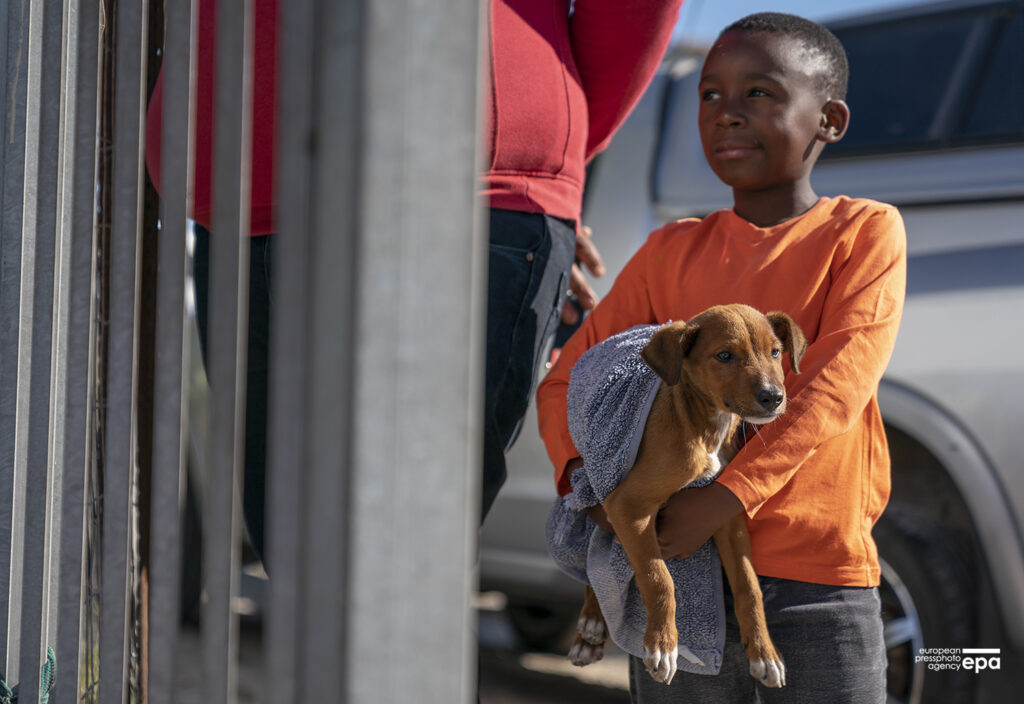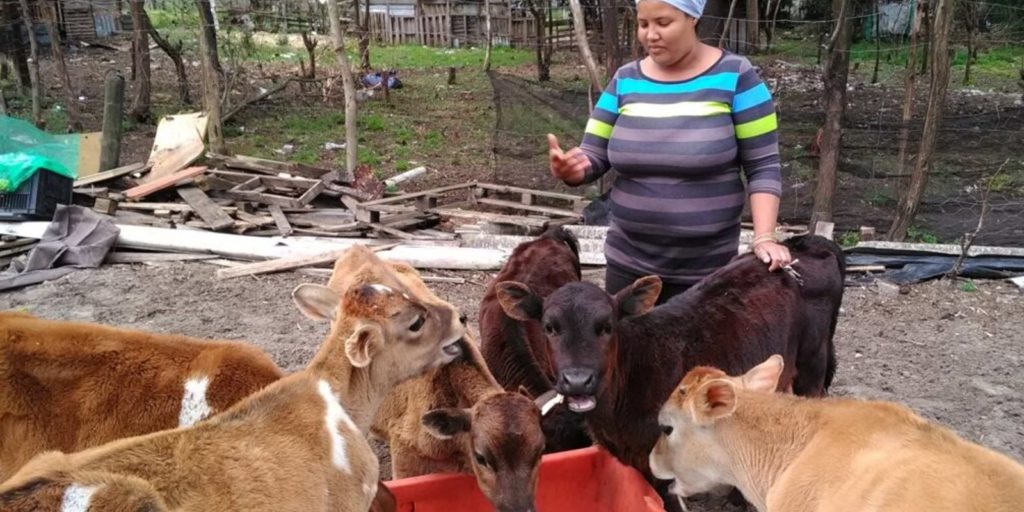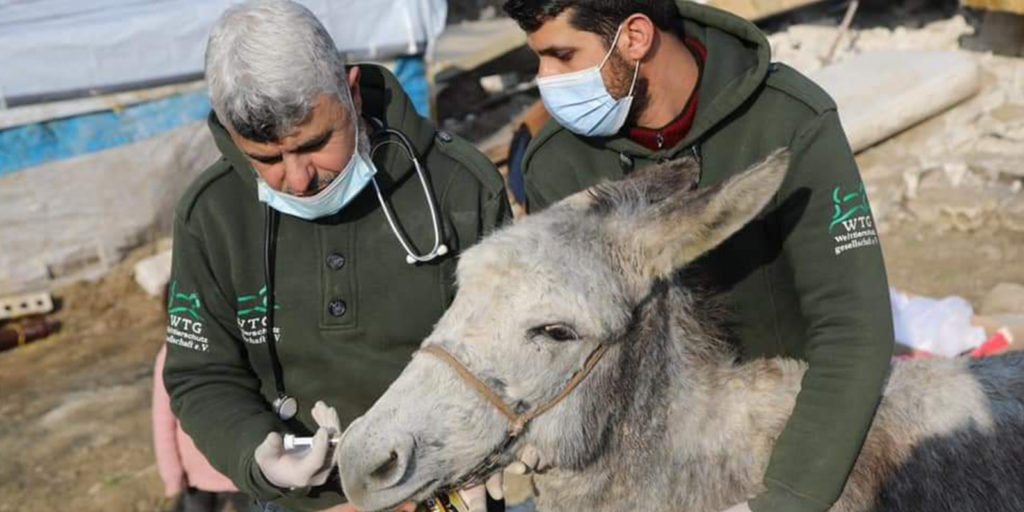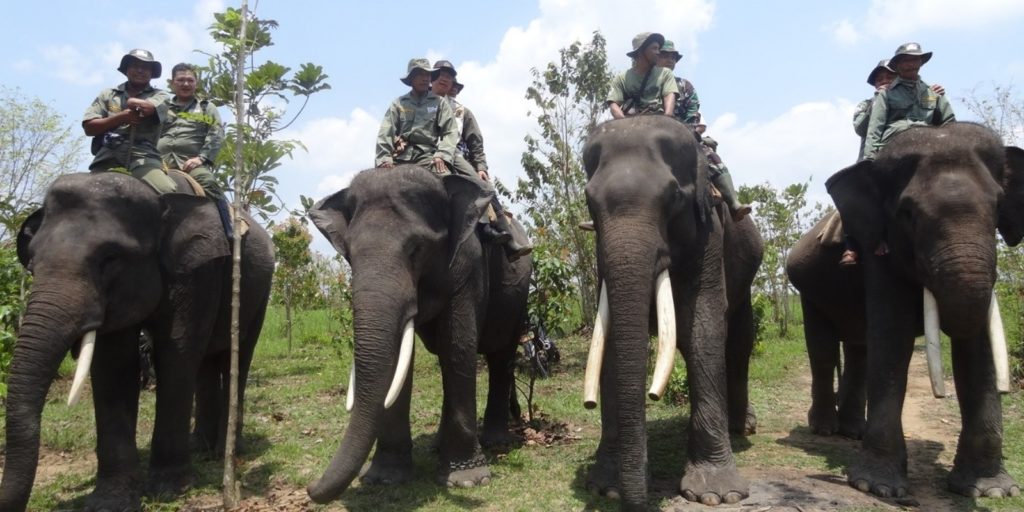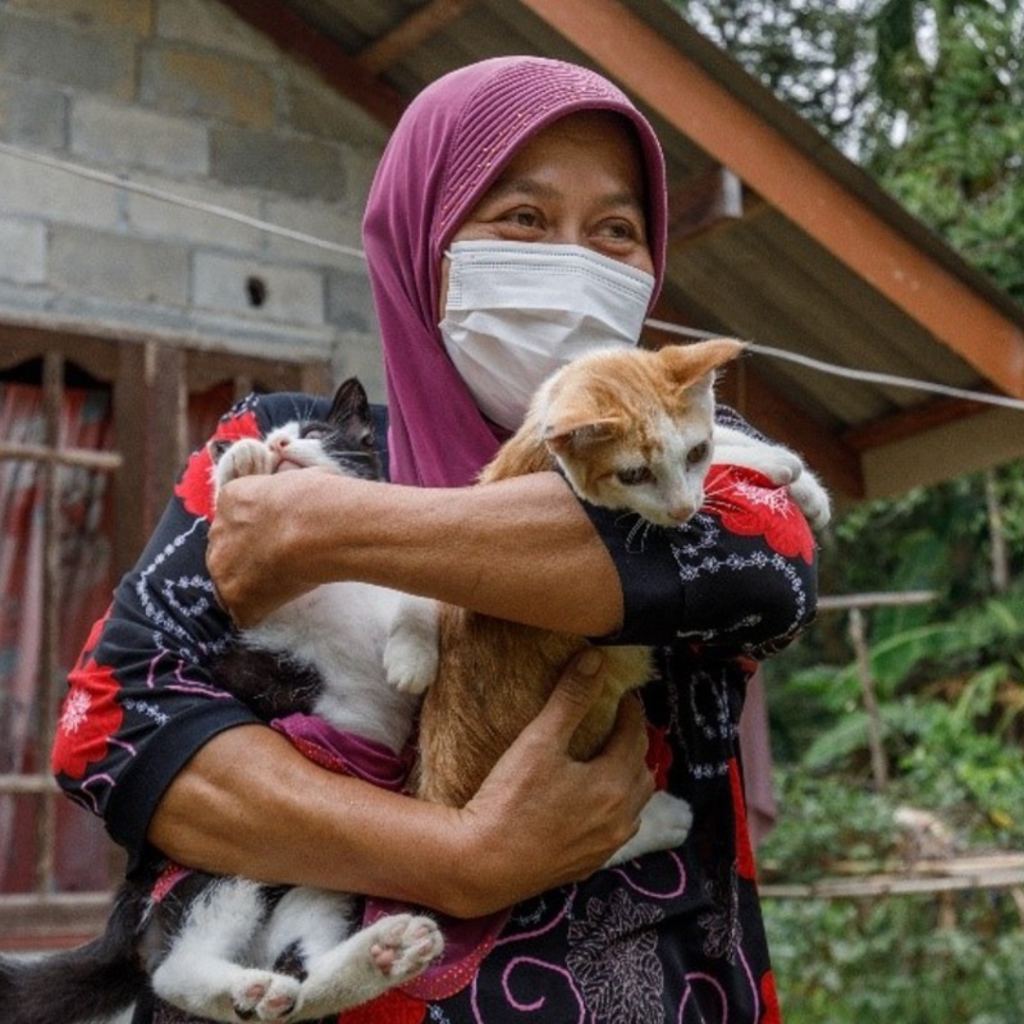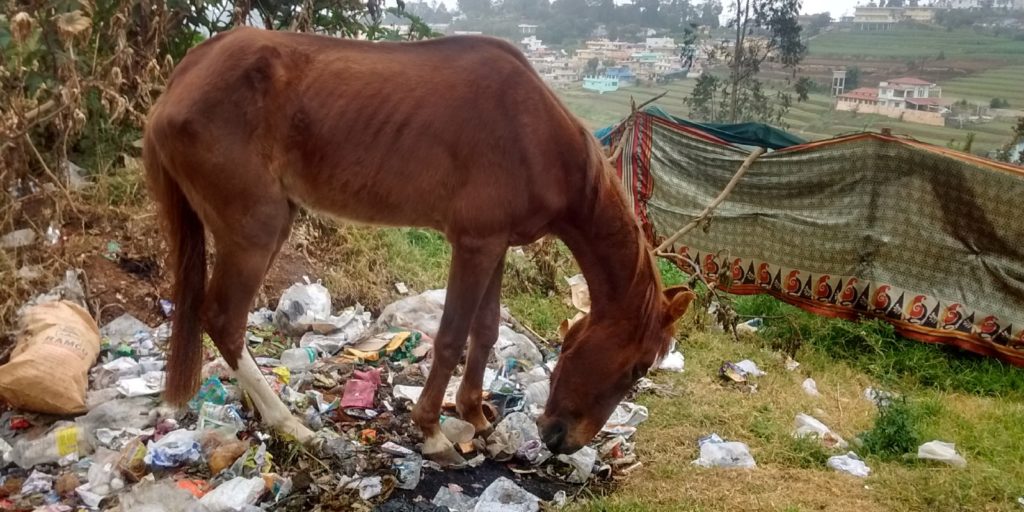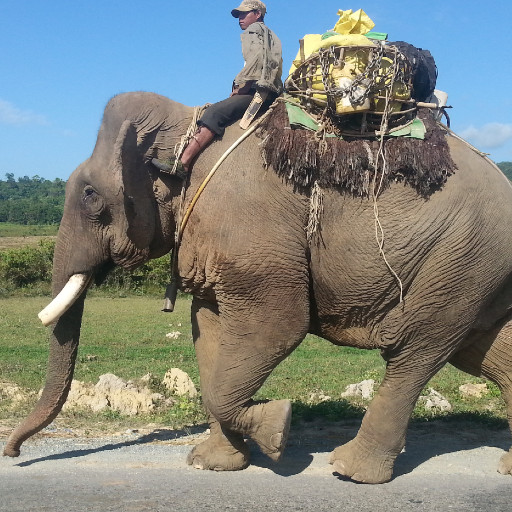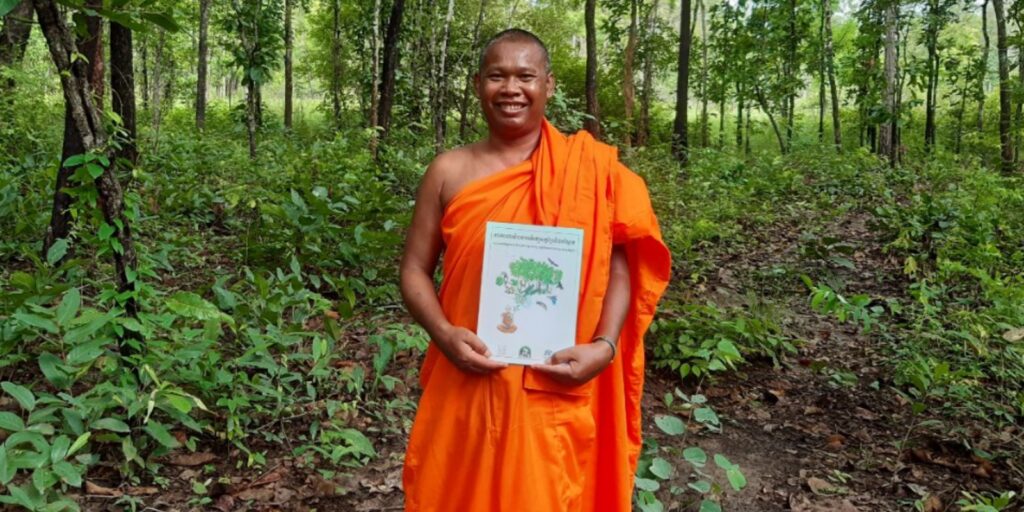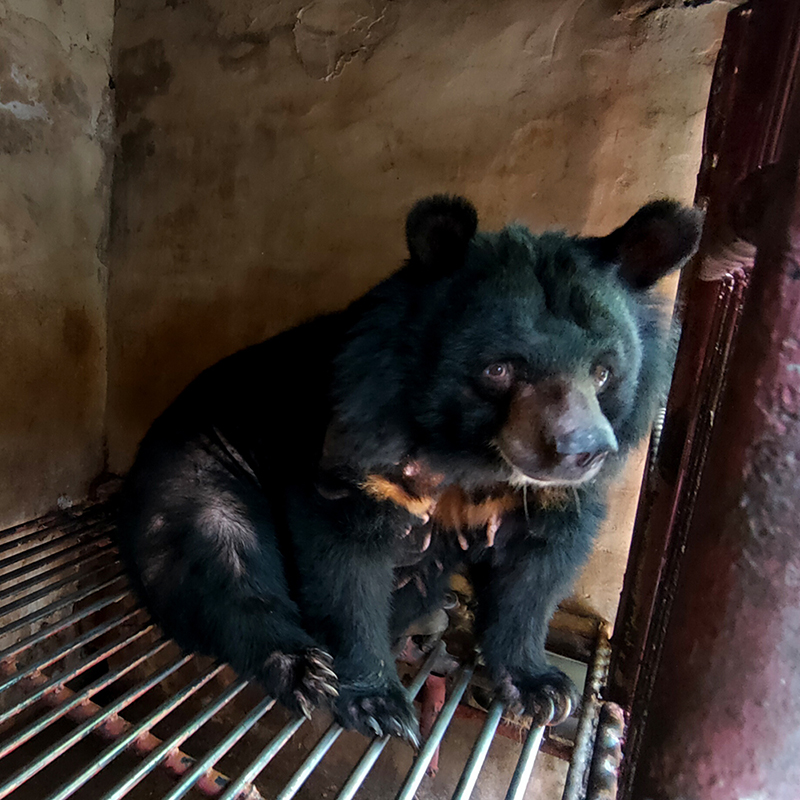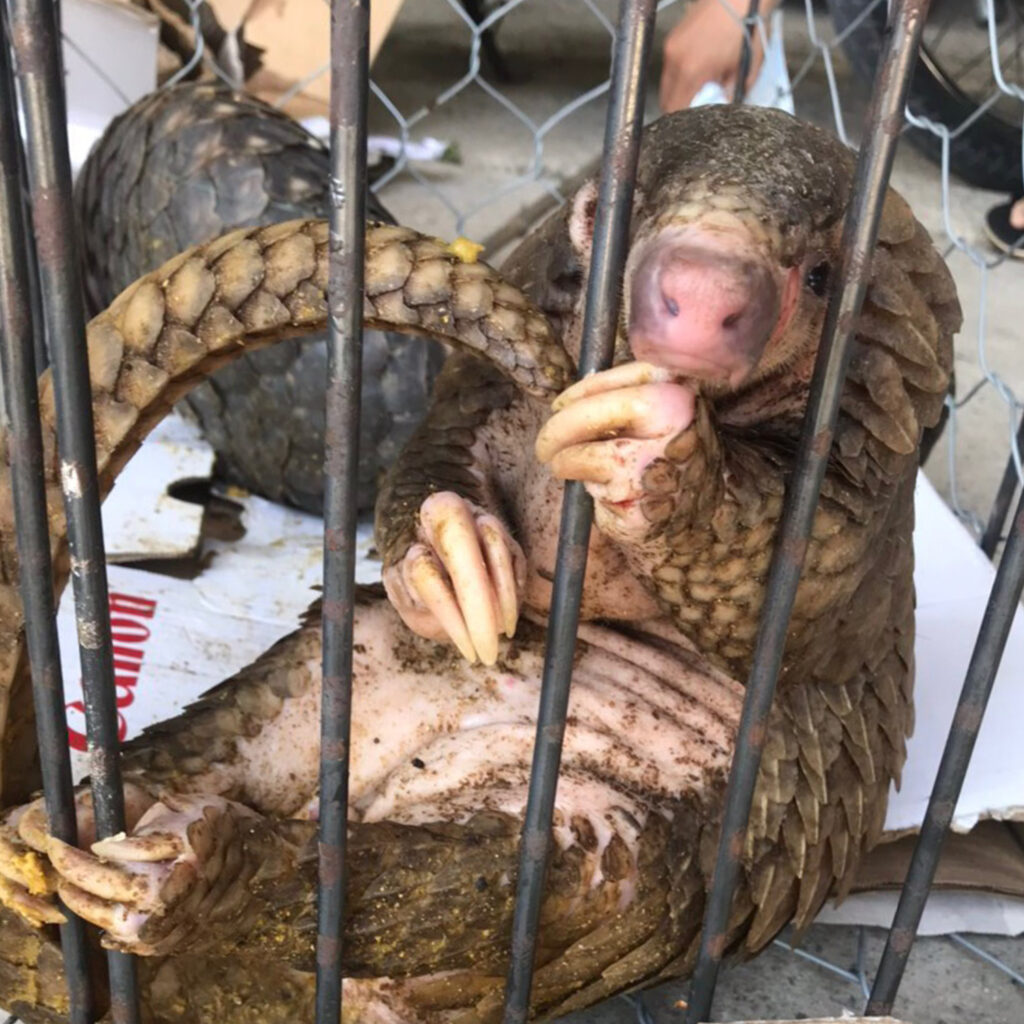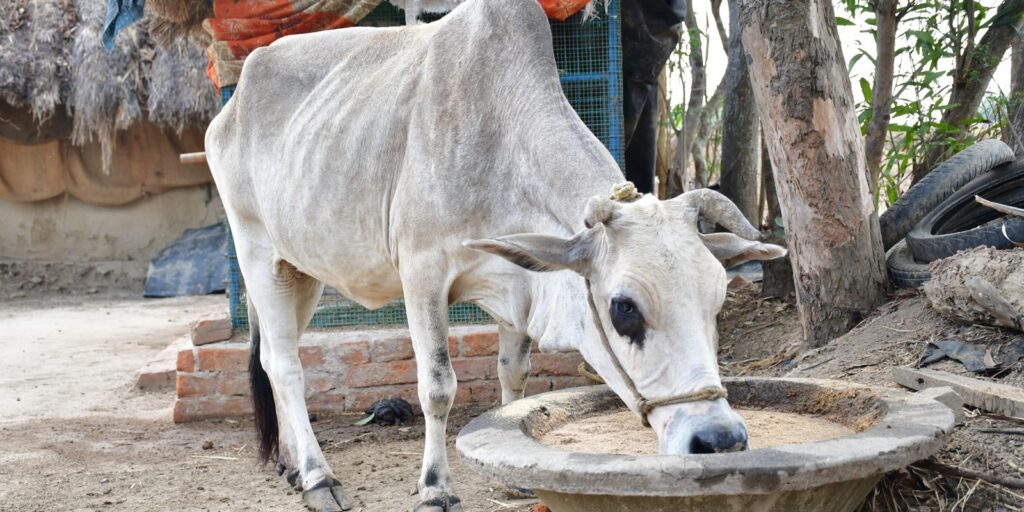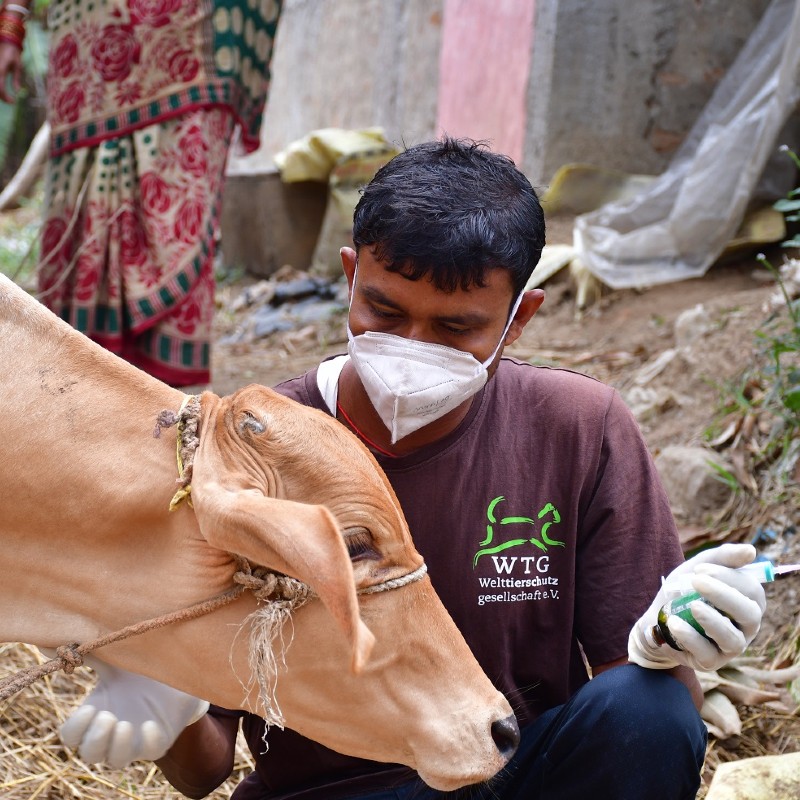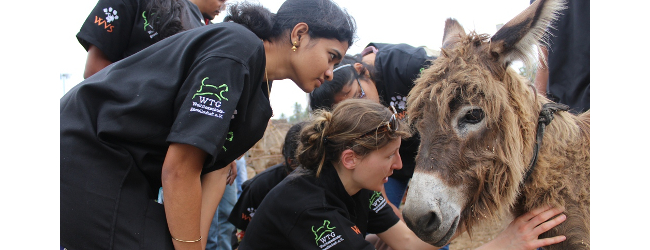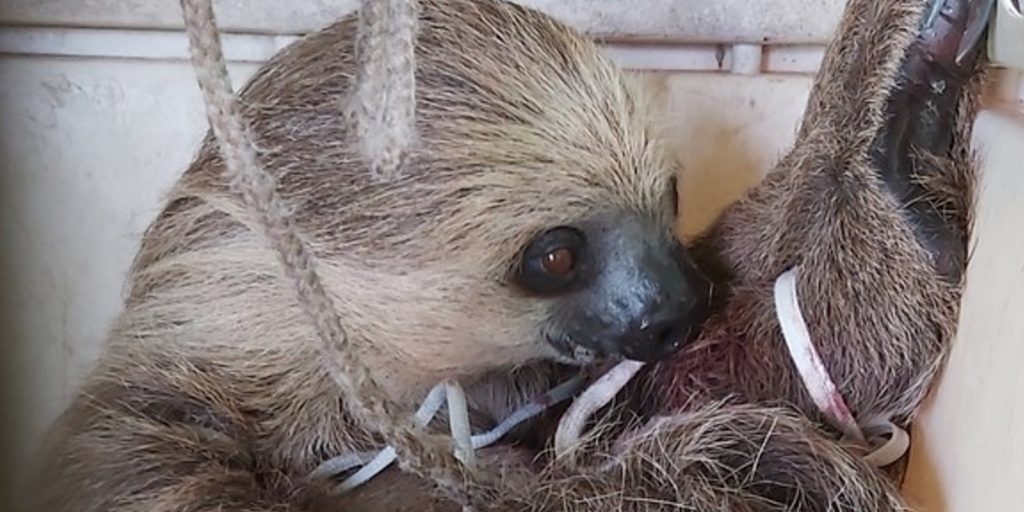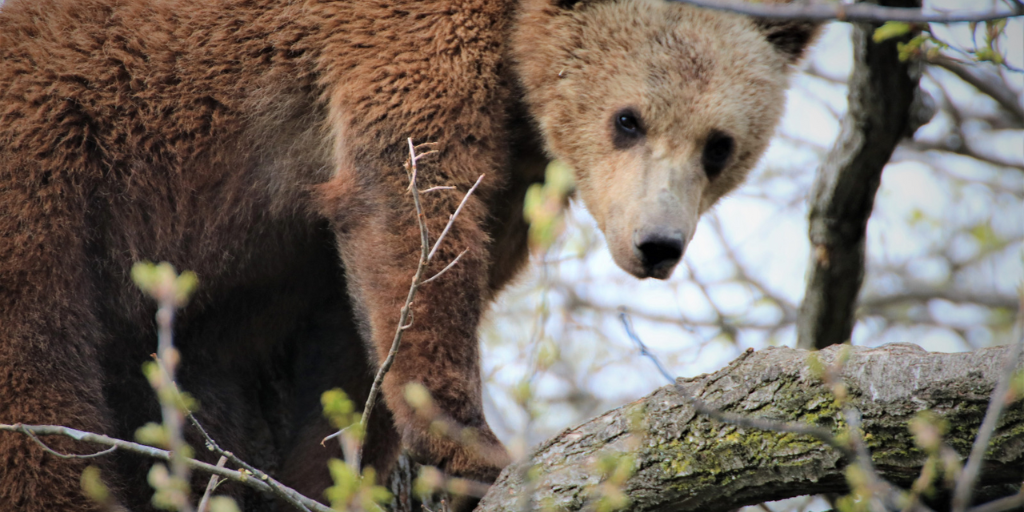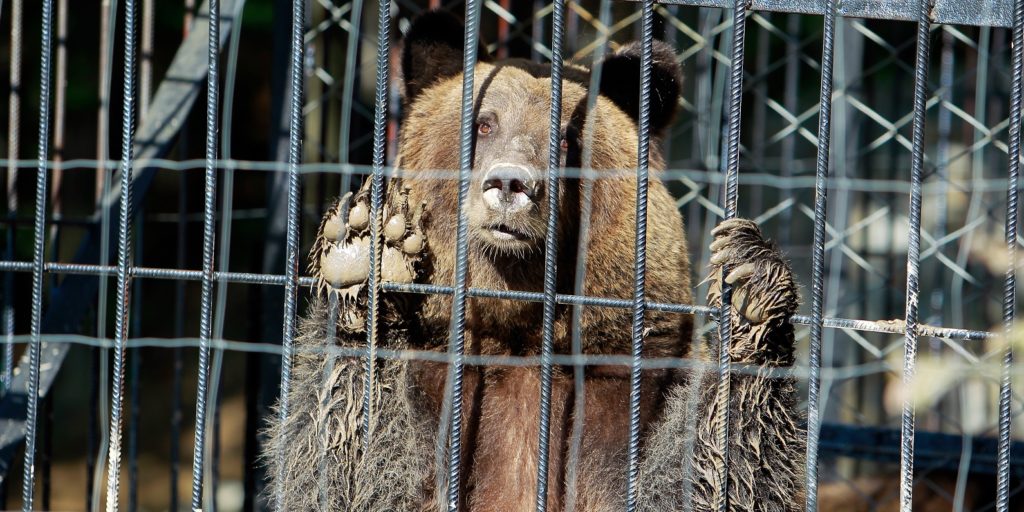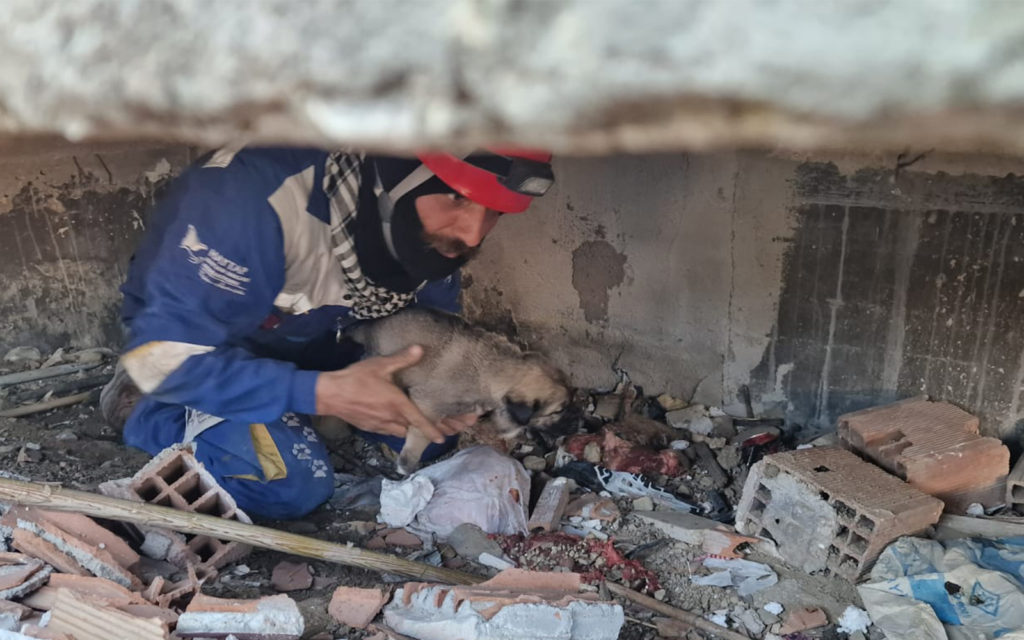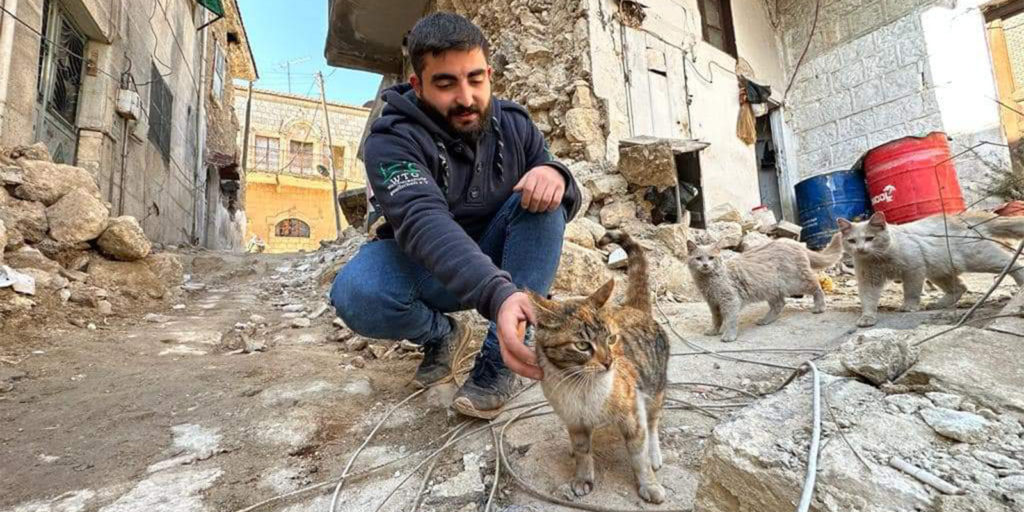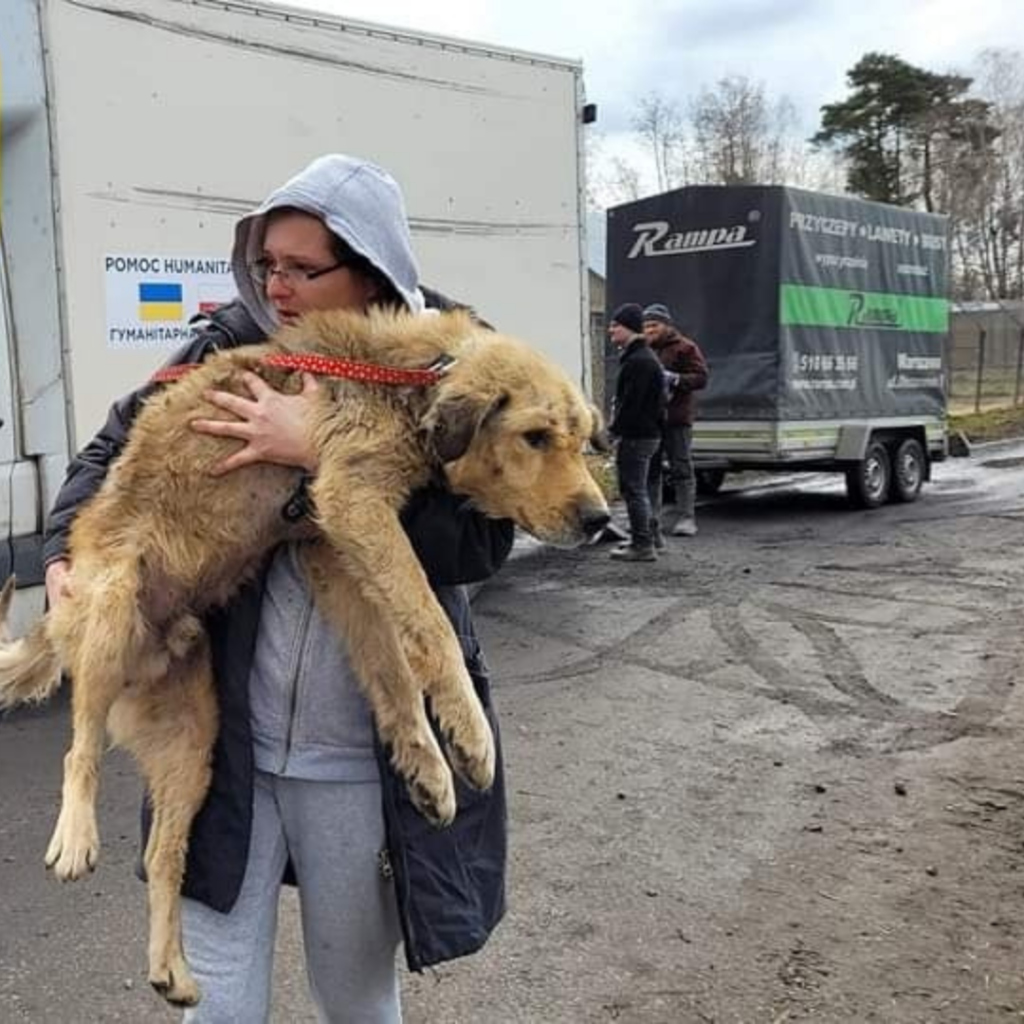Our work
Our vision is a world, in which animals are appreciated and treated with respect according to their needs. In our work for animal welfare we focus on countries and regions with little protection for animals.
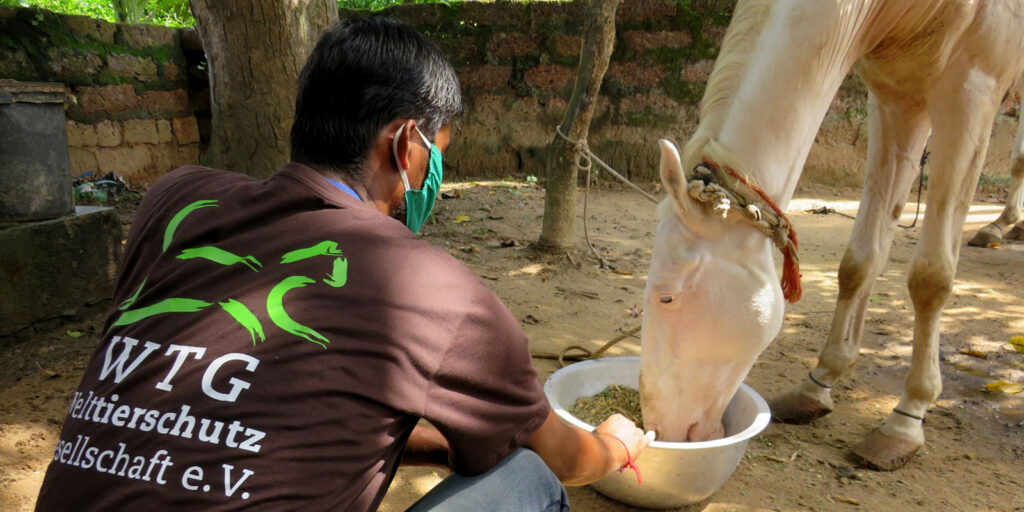
Worldwide Projects
We are highly committed to improve the living conditions of animals in the long-term. With that in mind we chose our projects and our partners according to clear guidelines.
National Campaigns
International animal welfare also starts at our own doorstep which is why we create awareness in Germany to improve the relationship between humans and animals.
Programme
VETS UNITED
To help raise animal welfare standards worldwide, Welttierschutzstiftung and Welttierschutzgesellschaft developed the programme VETS UNITED in 2015.
When clicking on our partner organization, you’ll be forwarded to our main page to read further information in German.
Africa
- South Africa: The Mdzananda Animal Clinic (MAC) is the only local animal welfare organisation working with two stationary clinics in Khayelitsha, South Africa’s largest slum on the outskirts of Cape Town, for the welfare of hundreds of thousands of pets and strays. However, since many pet owners are unable to access these offers, we support MAC in setting up mobile clinics and an emergency service. In this way, animals in remote regions can also receive medical help. As part of home visits, we also spread important animal welfare knowledge and improve animal welfare in the long term. Furthermore, together with the local organization Community Veterinary Services for Southern Africa (CVS-SA), we provide basic veterinary care around the capital Pretoria and in the Eastern Cape Province, carry out neutering and vaccination campaigns and use educational measures to raise awareness of animal welfare.
- Futhermore, the South African government supports people who want to build a livelihood with the help of agriculture. But there is hardly any transfer of knowledge about livestock farming. As a result, numerous animals are not treated well. Together with the Cape of Good Hope SPCA (CoGH SPCA), we are tackling these grievances and instructing pet owners in animal-friendly husbandry. In workshops, we address the individual circumstances and problems of animal owners and thus avert animal suffering in the long term.
- Rwanda: Together with the Welttierschutzstiftung and the local organization Rwanda Animal Welfare Organization (RAWO), we sensitise farmers to the well-being of their animals as part of the “Animal Welfare in Development Cooperation” program. Workshops are held in 15 regions of the Musanze district to impart theoretical and practical animal welfare knowledge. The project is accompanied by intensive monitoring and should be adopted as a starting point for further projects programs.
- Kenya: Together with the African Network for Animal Welfare (ANAW) we are working to improve the situation of the donkeys in Kenya through a veterinary care center and information work. While donkeys are a great help in everyday life, in many places there is a lack of knowledge about animal-friendly care and suitable husbandry conditions. Thus, the well-being of the animals is severely impaired. In addition, the donkey skin trade represents a central danger for the animals. With mobile clinics in the Migori and Marsabi regions and training for owners, we focus on the needs of the animals.
- Malawi: According to the goal set by the World Organization for Animal Health, no one in the world should die from rabies infection by 2030. To pursue this goal, we are working together with our project partner, the Lilongwe Society for the Protection and Care of Animals (LSPCA), in Malawi’s capital Lilongwe and have already been able to vaccinate over 30,000 dogs against the disease. In addition, vaccinations and information work are carried out among the population. A community-based response and surveillance program will also enable effective planning of further anti-rabies response.
- Tanzania: Animal keepers in Tanzania depend on the valuable service of their donkeys, for example when transporting heavy goods over long distances. Weakened by their non-stop use, extreme weather as a result of the climate crisis or stolen in the course of the donkey skin trade, the loss of their animals‘ ability to work presents the owners with existential hardships. Together with our local partner Tanzania Animals Protection Organization (TAPO), we support donkey keepers to ensure the welfare of their animals. In addition to mobile veterinary clinics, we rely on animal welfare education that provides information about potential dangers for donkeys and how to keep them properly.
- Programme VETS UNITED: Together with the Welttierschutzstiftung and local partners, we are committed to more animal welfare in the countries of the Global South as part of the VETS UNITED program. During veterinary training, normally specialists hardly come into contact with the area of animal welfare. That’s why we start with lecturers at universities and colleges and offer them course units on animal welfare-related topics, the knowledge of which they can pass on to students and as part of further training. The goal of accrediting the courses in the local curricula has already been achieved in some countries.
Asia
- Syria: Due to the civil war, millions of Syrians, including local veterinarians, left their homes and had to leave their animals behind. Several crises, including the earthquake in February 2023 or the outbreak of life-threatening infectious diseases, are leading to great animal suffering around Idlib. With our partner House of Cats Ernesto (HCE), we take on this suffering and enable up to 400 veterinary treatments every month in mobile clinics and one stationary clinic.
- Myanmar: Animal welfare has not played a role in the traditional use of working elephants in Myanmar’s forestry, so the animals often suffer lifelong physical and mental damage. Together with our partner organization Chances for Nature (CfN), we have established regular veterinary care and founded an interest group for local elephant keepers. In addition, multi-day training courses for non-violent and animal-friendly handling of the elephants take place.
- Cambodia: Monks have a great influence on the predominantly Buddhist society in Cambodia. We support the Angkor Center for Conservation of Biodiversity (ACCB) in making animal welfare training monks into animal and environmental protection ambassadors based on an extensive textbook and also provide care for rescued and needy wild animals in our partners‘ wildlife sanctuary.
- Vietnam: The trade in bear bile has been officially banned in Vietnam since 2005 – but numerous black bears and sun bears are still in agonizing captivity. Our partner organization Free The Bears (FTB) frees these bears and accommodates them in a sanctuary that is constantly growing with our support. Furthermore, Vietnam is considered a hotspot of illegal wildlife trade – but although thousands of animals are rescued by the authorities every year, they often cannot be cared for due to a lack of knowledge; and die. Together with our partners from Save Vietnam’s Wildlife (SVW), we are committed to improve first aid, a good recovery and the fastest possible reintroduction to the wild of these animals. Through educational work, we also create the basis for strengthening animal welfare awareness among the population and thus the protection of animals.
- Thailand: Countless strays make their home on the island paradise of Thailand, but find inadequate care and often succumb to painful diseases. Together with our partners from Lanta Animal Welfare (LAW), we now help stray dogs and cats in nine regions of Thailand with mobile clinics, where we provide medical care, stetrilise and vaccinate the animals. In addition, we are spreading more understanding and respect for animals through mobile clinics, home visits, and school and community events.
- India: In the remote villages of the eastern Indian state of Odisha, animals are essential for the local population: Cattle and goats in particular are kept, but find insufficient care due to a lack of funds and available veterinary offers. We are working with the local organization Action for Protection of Wild Animals (APOWA) to establish regular veterinary care in rural areas. Animal welfare groups are formed from committed animal keepers in each village and are instructed to independently carry out veterinary first aid and thus provide sustainable animal aid.
- Besides that, we focus on helping horses and donkeys in the South of India. Outside of the tourism season, here many horse owners are unemployed because the animals are otherwise their only source of income for riding tours in the mountains. Affected owners fall into poverty in these times and can no longer look after their animals, which is why they sometimes have to be neglected and roam the streets. Three days a month, with our partner organisation Worldwide Veterinary Service (WVS), we enable a mobile horse clinic to help the stray animals. Aso Donkeys are used in southern India as pack animals and as mounts – work that they usually have to do under adverse conditions. Together with our partner organisation Worldwide Veterinary Service (WVS), we improve the living conditions of the animals with the help of mobile clinics, an emergency team and extensive educational work among owners.
- Indonesia: Together with our partners Community for Sumatra Nature Conservation (CSNC), we are committed to a better quality of life for elephants and a peaceful coexistence of humans and animals in Way Kambas National Park. With our help, better care for former camp elephants can be ensured. With elephant patrols, we avert the still problematic human-animal conflicts at an early stage and involve the local population in the interests of sustainable project success.
South America and Europe
- Suriname: Due to the ongoing deforestation of the rainforest and extreme weather conditions, the habitat of Suriname’s wild animals is in constant danger. We support the country’s only wild animal protection center of our partner organization Green Heritage Fund Suriname (GHFS) in the protection of wild animals. With our support, the team rescues and cares for wild animals such as sloths and anteaters in need and, if possible, releases them back into the wild. In addition, we promote animal protection awareness through educational measures in the form of guided tours, school visits and information events.
- Romania: Whether former zoo or circus bears, bears from illegal private keeping, animals injured on the road, orphaned young bears or those who get into human-bear conflicts: together with our Romanian partner organization Asociatia Milioane de Prieteni (AMP), we offer bears in need refuge and a bear-friendly home in Europe’s largest bear protection center.
- Ukraine: The war against Ukraine makes it impossible to plan for relief efforts in the country at the moment and so our work for the bears has to be paused. We are still in constant personal contact with our partners in order to obtain information about their whereabouts and the situation. We also know that the care of the bears is ensured at all times by at least one employee. For more details on our work in response to the war, read here: welttierschutz.org/standwithukraine/.
- Programme „Animal welfare in development cooperation„: Farm animals are of vital importance to millions of people, especially in emerging and developing countries, and are therefore often used in development cooperation projects. However, many of the beneficiaries do not have the necessary knowledge to care for their animals according to their needs. Together with the Welttierschutzstiftung, as part of the „Animal Welfare in Development Cooperation“ programme, we are raising awareness of the need to integrate animal welfare as an integral part of projects in order to prevent disease, suffering and the premature death of animals due to poor husbandry conditions.
WTG-Emergency Relief Fund
- With the help of the WTG emergency fund, we want to enable basic animal protection work even in the greatest crises and disasters. We ensure emergency care in the event of natural disasters, wars and global challenges and also help to maintain important structures by, for example, covering increased costs for our partner organizations or, as in the case of the corona pandemic, ensuring that necessary hygiene requirements are met.
Campaigns
#TiereMitdenken: Animals such as cattle, donkeys and goats are essential for more than half of the people in extreme poverty in the Global South. With our campaign “Tiere mitdenken” (“Giving thought to animals as well”), we want to ensure that the well-being of these animals is taken into account in global food security measures. To this end, we are addressing our #TiereMitdenken petition to the Federal Ministers Schulze and Özdemir.
#StopptTierleid: With our campaign “Stoppt Tierleid in den sozialen Netzwerken” („Stop animal suffering in the social networks“) we want to ensure that the uncritical depiction of animal suffering in the social networks is stopped. We specifically call on the operators of the platforms to expand their community standards to include animal suffering issues and to ensure compliance by users. If they don’t, they must be legally obliged to do so. As part of our information work, we also instruct users to recognise and report animal suffering content.
5 Euros
monthly
help vaccinating 15 dogs against deadly rabies.
50 Euros
secure the veterinary care of 100 donkeys in our mobile clinics in Kenya.
Your contribution matters
We aim at improving the situation for animals in long term i. e. by providing veterinary care, by supporting animal sanctuaries and through our educational work. Every single donation helps!
You want to learn more about WTG e.V. and our worldwide projects?

Please get in contact
Katharina Felsenstein
Service and Fundraising
Tel.: +49(0)30 – 9237226-0
E-Mail: info@welttierschutz.org
Welttierschutzgesellschaft e.V.
Reinhardtstr. 10
10117 Berlin
Germany
